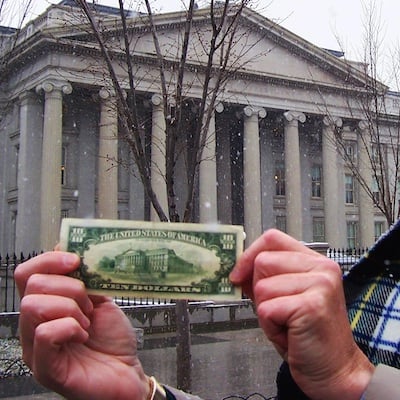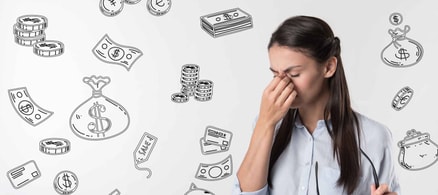Why more consumers are being weighed down by debt
With U.S. credit card debt surpassing the $1 trillion mark last year, more consumers are feeling the strain on their wallets.
But while there have been reports of Americans spending big over the summer on things they enjoy, like travel, concerts and dining out, they aren’t necessarily racking up debt due to impulse purchases.
Around 43% of those in debt are actually carrying an outstanding balance due to an unexpected or emergency expense, such as medical bills, car repairs or home repairs, according to Bankrate. This could also back a wider trend around the savings rate receding and more folks living paycheck to paycheck.
Another survey from Forbes Advisor reveals that more than 4 in 10 respondents have nothing left over from their paychecks after covering their expenses — and a stunning 77% report not having enough money in emergency savings to cover one month’s expenses.
Many Americans are being driven into debt by their emergency costs because they don’t have enough money banked in their savings — but here’s what you can do to prevent this from happening.
How to get a free $20 to invest in your future
An app called Acorns automatically rounds up purchases made on your credit or debit card to the nearest dollar and places the excess "change" into a smart investment portfolio. Acorns offers a $20 welcome bonus, immediately from your first investment.
Get $20Budget for your expenses
Your groceries and gas might be taking up too much of your income to consider setting any aside — but it can be helpful to start recording your monthly expenses in an Excel spreadsheet or an app and budget for your needs.
Look for easy ways to cut costs, like getting rid of that gym membership or streaming service subscription you never use, or shopping around for a cheaper insurance rate on your car.
If you’re looking for a more tangible method of managing your money, you could even try the cash stuffing hack and take your paycheck in cash and divide it into different envelopes based on each spending category to prevent you from overspending. You can include designated envelopes for your savings and even discretionary purchases.
Pay off your debt
Paying off your monthly credit card balance is crucial if you want to avoid racking up more interest and debt — but the reality is that millions of Americans are carrying their balances forward.
If you want to get yourself out of that cycle, try the avalanche method, where you start with your highest interest debt, while making the minimum payments on your other credit cards or loans.
You can also try calling up your credit card issuer and ask for a lower interest rate. Keep in mind that you’re more likely to get approved if you have a history of on-time payments and a strong credit score to back you up.
Or, consider credit counseling, so a professional can evaluate your situation and put you on a personalized debt management plan.
This 2 Minute Move Could Knock $500/Year off Your Car Insurance in 2024
Saving money on car insurance with BestMoney is a simple way to reduce your expenses. You’ll often get the same, or even better, insurance for less than what you’re paying right now.
There’s no reason not to at least try this free service. Check out BestMoney today, and take a turn in the right direction.
Get StartedBuild a rainy day fund
Handling an unexpected or emergency expense isn’t so bad when you’ve got some savings set aside to cover it.
While most experts recommend keeping three to six months’ worth of expenses in a savings account, if that seems like too lofty a goal, just start with small amounts at a time.
Perhaps it’s easier for you to start with saving $10 each month, or $100, while you work your way up at a pace that’s still manageable for your financial situation.
You can also consider opening a high-yield savings account, which could come with an interest rate higher than 5%, compared to the average savings account rate of 0.46%.
Sponsored
Follow These Steps if you Want to Retire Early
Secure your financial future with a tailored plan to maximize investments, navigate taxes, and retire comfortably.
Zoe Financial is an online platform that can match you with a network of vetted fiduciary advisors who are evaluated based on their credentials, education, experience, and pricing. The best part? - there is no fee to find an advisor.








